Benefits Of Cashew!
Cashews are a versatile and nutritious nut that offer a wide range of health benefits. They are packed with essential nutrients, including healthy fats, protein, vitamins, minerals, and antioxidants.
Introduction:
Welcome, nut enthusiasts and health-conscious snackers, to the delectable world of cashews! Nestled among the shelves of nuts, this humble little wonder has been gaining immense popularity as a snack and an ingredient in various culinary creations. But wait, there’s more to these kidney-shaped delights than just their irresistible crunch and mouthwatering flavor! Today, we dive into the vast array of health benefits that make cashews truly nut-orious!

Picture this: a snack that not only satisfies your cravings but also nourishes your body and tantalizes your taste buds. Cashews, my friends, are the dynamic darlings of the nut kingdom. These delectable nuts offer a nutritional profile that could make even the most diligent squirrel swoon with envy. Packed with vitamins, minerals, and antioxidants, cashews are the superhero cape your body needs for a healthier, more vibrant life.
Now, before we embark on this enlightening journey through the cashew kingdom, let’s acknowledge the elephant in the room—or should I say, the cashew in the jar? Yes, it’s true, cashews aren’t technically nuts; they’re seeds! But let’s not hold that against them, shall we? After all, they have managed to infiltrate the nut world with their nut-like qualities and undeniable charm. So, let’s dive in and discover why these sneaky seeds have earned their rightful place in the hearts and pantries of nut enthusiasts everywhere.
Whether you’re a long-time cashew connoisseur or a curious novice in the world of nuts, prepare to have your taste buds tickled and your wellness radar elevated. From heart-healthy properties that make cardiologists applaud to brain-boosting nutrients that’ll have you outsmarting squirrels in no time, the benefits of cashews are as diverse as their culinary applications. So, grab a handful of these delightful morsels and join us on this nutty adventure through the remarkable world of cashews!
- Benefits Of Cashew!
- Introduction:
- 1. Benefits of cashews for skin:
- 2. Benefits of cashew for hair:
- 3. Benefits of cashew for brain:
- 4. Benefits of cashew for men:
- 5. Benefits of cashew for female:
- 6. Benefits of cashew for kids:
- 7. Benefits of cashew nuts for teeth:
- 8. Benefits of cashew nuts for eyes:
- 9. Benefits of cashew nuts for weight gain:
- 10. Benefits of cashew nuts for weight loss:
- 11. Benefits of cashew nuts for Gym:
- 12. Benefits of cashew nuts for runners:
- 13. Benefits of eating cashew nuts in morning:
- 14. Benefits of eating cashew nuts at night:
- 15. Benefits of eating cashew on empty stomach:
- 16. Benefits of eating cashew nuts with milk:
- 17. Benefits of eating cashew nuts with honey:
- 18. Benefits of eating cashew for bones:
- 19. Benefits of eating roasted cashew nuts:
- Extra benefits of cashews!
- Conclusion:
- Related Articles
- Frequently Asked Questions! FAQs on Cashews!
1. Benefits of cashews for skin:

Cashews aren’t just a delicious snack; they also offer a range of benefits for your skin. From promoting a youthful appearance to providing nourishment and protection, cashews can be a nutty addition to your skincare routine. Let’s dive into the amazing benefits of cashews for your skin:
- Nourishing and Moisturizing: Cashews are packed with essential fatty acids, such as omega-3 and omega-6, which help nourish and moisturize your skin. These healthy fats help maintain the skin’s natural barrier, preventing moisture loss and keeping your skin hydrated and supple. So, snack on cashews or use cashew oil in your skincare products for a dose of skin-loving nourishment.
- Anti-Aging Properties: Cashews are rich in antioxidants, including vitamin E and selenium, which help fight off free radicals and protect your skin from oxidative stress. Free radicals can contribute to premature aging, causing wrinkles, fine lines, and sagging skin. By incorporating cashews into your diet or skincare routine, you can give your skin a natural boost of antioxidants to maintain a youthful appearance.
- Promoting Collagen Production: Cashews contain copper, a mineral that plays a crucial role in the production of collagen. Collagen is a protein that provides structure and elasticity to your skin, keeping it firm and plump. By including cashews in your diet or using cashew oil topically, you can support collagen production, helping to reduce the appearance of wrinkles and promote a more youthful complexion.
- Skin Repair and Protection: The vitamins and minerals in cashews, including zinc and magnesium, contribute to skin repair and protection. Zinc helps speed up wound healing and supports the immune system, aiding in the repair of damaged skin. Magnesium, on the other hand, helps maintain skin elasticity and protects against environmental stressors. So, whether you enjoy cashews as a snack or apply cashew oil topically, you’re giving your skin the tools it needs to repair and protect itself.
- Soothing Inflammation: Cashews possess anti-inflammatory properties that can help calm irritated or inflamed skin. Whether you’re dealing with acne, redness, or other inflammatory skin conditions, incorporating cashews into your diet or using cashew oil topically may provide relief and soothe the skin.
Remember, while cashews offer these skin benefits, they work best as part of an overall healthy lifestyle and skincare routine. It’s important to listen to your skin, choose high-quality cashews or cashew oil, and be consistent in your approach. If you have any specific skin concerns or conditions, it’s always advisable to consult with a dermatologist for personalized advice.
So, embrace the nutty power of cashews and give your skin a delicious dose of nourishment, protection, and rejuvenation. Snack on these delightful nuts, incorporate cashew oil into your skincare routine, and let your skin go nuts for the benefits of cashews!
FAQs:
It’s important to note that individual results may vary, and the best approach to achieving healthy skin is a combination of a balanced diet, proper skincare routine, and overall lifestyle choices. If you have specific concerns or conditions, it’s always advisable to seek professional advice from a dermatologist or skincare expert.
2. Benefits of cashew for hair:
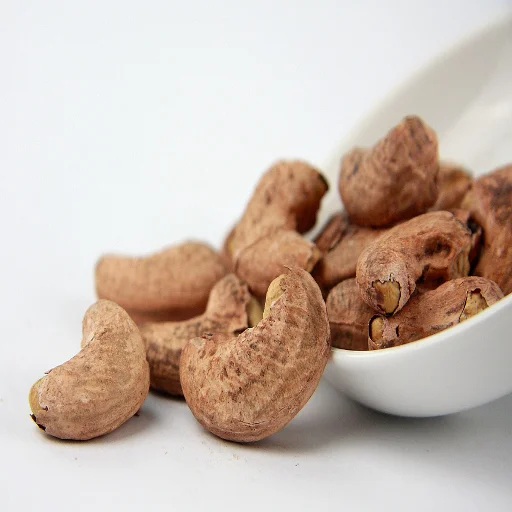
Cashews are not just a delicious snack; they also offer several benefits for your hair. From promoting hair growth to nourishing the scalp, cashews can be a nutty addition to your hair care routine. Let’s explore the amazing benefits of cashews for your hair:
- Hair Growth: Cashews are rich in essential nutrients that support hair growth. They contain vitamins E, B vitamins (including biotin), and minerals like zinc and copper, which are known to promote healthy hair growth. These nutrients help nourish the hair follicles, strengthen the hair strands, and encourage the growth of new, healthy hair.
- Scalp Health: The healthy fats present in cashews, such as omega-3 fatty acids, help nourish and moisturize the scalp. A well-hydrated scalp promotes a healthy environment for hair growth and can reduce issues like dryness, itchiness, and flakiness. Cashews also contain antioxidants that help protect the scalp from oxidative stress and maintain its overall health.
- Preventing Hair Loss: Cashews contain nutrients like iron and magnesium, which are essential for maintaining healthy hair and preventing hair loss. Iron supports proper oxygenation of the scalp and hair follicles, while magnesium helps strengthen the hair shafts. By incorporating cashews into your diet or using cashew oil for scalp massages, you can provide your hair with the nutrients it needs to stay strong and reduce the risk of excessive hair loss.
- Enhancing Hair Texture: The vitamins and minerals found in cashews can contribute to improved hair texture. The presence of biotin, in particular, helps strengthen the hair strands and prevent brittleness. Stronger hair strands are less prone to breakage and can lead to smoother, more manageable hair.
- Moisture Retention: Cashews’ natural oils, when used topically, can help lock in moisture in the hair strands, keeping them hydrated and reducing frizz. This can result in softer, more lustrous hair that is easier to style and manage.
Remember, while cashews offer these hair benefits, they work best as part of an overall healthy lifestyle and hair care routine. Additionally, individual results may vary, and it’s important to listen to your hair’s specific needs. If you have any specific hair concerns or conditions, it’s always advisable to consult with a trichologist or hair care professional for personalized advice.
So, embrace the nutty power of cashews and give your hair a delicious dose of nourishment, growth support, and overall vitality. Snack on these delightful nuts, incorporate cashew oil into your hair care routine, and let your hair go nuts for the benefits of cashews!
2.1 How to eat cashew for hair growth:
If you’re looking to harness the hair growth benefits of cashews, incorporating them into your diet is a great way to start. Here are a few ideas on how to eat cashews for hair growth:
- Snack on Raw Cashews: Enjoy a handful of raw cashews as a snack on their own. They make for a convenient and nutritious snack option. Remember to chew them thoroughly to aid in digestion and nutrient absorption.
- Add Cashews to Smoothies: Blend cashews into your favorite smoothie for an extra boost of nutrients. Cashews can add creaminess and richness to your smoothies while providing essential vitamins and minerals that promote hair growth.
- Cashew Butter Spread: Swap your regular nut butter with cashew butter. Spread it on whole-grain toast or use it as a dip for fruits or vegetables. Cashew butter is a delicious way to incorporate cashews into your diet while enjoying their hair growth benefits.
- Cashew Milk: Replace regular dairy milk with homemade cashew milk in your cereals, coffee, or recipes. You can easily make cashew milk by blending soaked cashews with water and straining the mixture. Cashew milk offers a creamy and nutty flavor, and it’s a fantastic alternative for those with lactose intolerance or dairy allergies.
- Cashew in Recipes: Add cashews as a crunchy and nutritious topping to salads, stir-fries, or grain bowls. You can also use cashews in baking, such as adding them to cookies, cakes, or homemade granola bars, for an extra nutrient boost.
- Additionally, incorporating cashew oil into your hair care routine can provide external nourishment to your hair and scalp. You can use cashew oil for scalp massages or as a pre-shampoo treatment. Gently massage the oil into your scalp to stimulate blood circulation and promote hair growth.
Remember, while cashews can support hair growth, it’s important to maintain a balanced diet and follow a comprehensive hair care routine that includes proper cleansing, conditioning, and other healthy practices. If you have specific concerns or conditions, it’s always advisable to consult with a trichologist or hair care professional for personalized advice.
So, go ahead and enjoy the nutty goodness of cashews for hair growth. Whether you snack on them, incorporate cashew products into your recipes, or use cashew oil for scalp massages, you’re giving your hair the nourishment it needs for optimal growth and vitality.
FAQs:
It’s important to keep in mind that the effects of cashews on hair may vary from person to person, and they work best as part of an overall healthy lifestyle and hair care routine. If you have specific concerns about grey hair, hair fall, or hair growth, it’s always advisable to seek professional advice from a healthcare provider or dermatologist. They can provide personalized guidance and recommend appropriate treatments or lifestyle modifications based on your individual needs.
3. Benefits of cashew for brain:
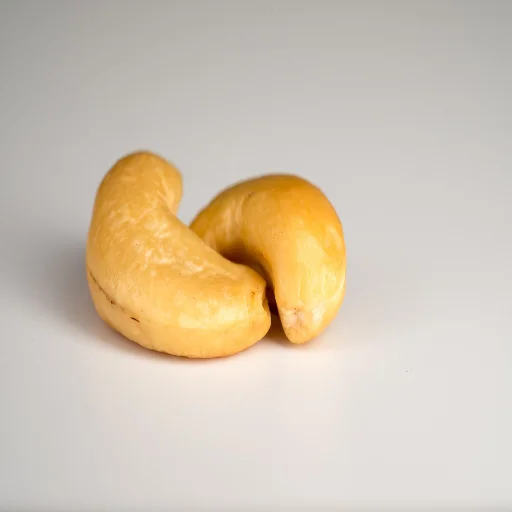
Cashews not only make a delicious snack but also offer a range of benefits for brain health. Packed with essential nutrients, these kidney-shaped nuts can contribute to better cognitive function, memory, and overall brain health. Let’s explore the amazing benefits of cashews for the brain:
- Rich in Essential Nutrients: Cashews are a great source of several nutrients that support brain health. They contain vitamins E and B6, which are known to promote healthy brain function. Vitamin E is a powerful antioxidant that helps protect brain cells from oxidative damage, while vitamin B6 plays a crucial role in the production of neurotransmitters, the chemicals that facilitate communication between brain cells.
- Enhancing Cognitive Function: The combination of vitamins, minerals, and healthy fats found in cashews can contribute to improved cognitive function. The brain relies on a steady supply of nutrients to perform at its best, and cashews provide key nutrients like magnesium, zinc, and iron, which support brain health and enhance cognitive abilities such as memory, focus, and concentration.
- Boosting Mood and Alleviating Stress: Cashews contain amino acids that help promote the production of serotonin, a neurotransmitter known as the “feel-good” chemical. Serotonin plays a vital role in regulating mood, promoting feelings of well-being, and reducing stress and anxiety. Incorporating cashews into your diet can contribute to a positive mood and help manage stress levels.
- Protecting Brain Health: Cashews are rich in antioxidants, including vitamin E, which help protect brain cells from damage caused by free radicals. Free radicals are unstable molecules that can cause oxidative stress in the body, leading to cellular damage. By consuming cashews regularly, you can provide your brain with antioxidant support, helping to maintain its health and potentially reducing the risk of age-related cognitive decline.
- Supporting Nervous System Function: The combination of vitamins, minerals, and healthy fats in cashews also supports the proper functioning of the nervous system. These nutrients play a role in transmitting nerve signals, maintaining the structure of nerve cells, and supporting the overall health and function of the nervous system.
It’s important to note that while cashews offer these brain benefits, they work best as part of an overall healthy lifestyle. Incorporate a balanced diet, regular exercise, quality sleep, and mental stimulation for optimal brain health. If you have specific concerns or conditions, it’s always advisable to consult with a healthcare professional for personalized advice.
So, embrace the nutty power of cashews and give your brain a delicious boost. Snack on these delightful nuts, add them to your meals, and let your brain go nuts for the benefits of cashews!
FAQs:
It’s important to note that while cashews can contribute to brain health, they work best as part of an overall healthy lifestyle that includes a balanced diet, regular exercise, quality sleep, and mental stimulation. If you have specific concerns or conditions, it’s always advisable to consult with a healthcare professional or registered dietitian for personalized advice.
So, embrace the nutty goodness of cashews and enjoy their brain-boosting benefits as part of a healthy and balanced lifestyle.
4. Benefits of cashew for men:
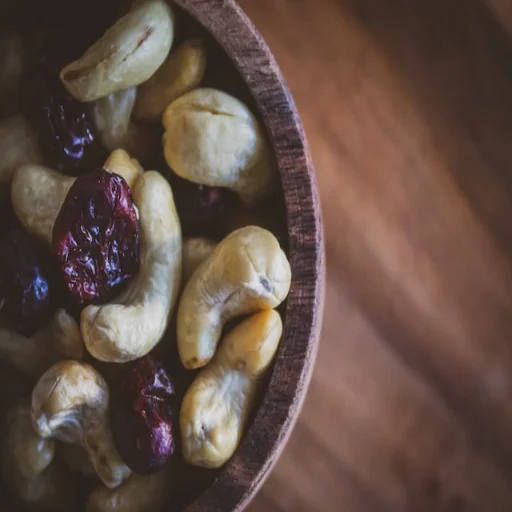
Cashews offer numerous benefits for men’s health. Packed with essential nutrients, these kidney-shaped nuts can contribute to overall well-being, support specific aspects of men’s health, and promote vitality. Let’s explore the amazing benefits of cashews for men:
- Heart Health: Cashews contain healthy fats, including monounsaturated and polyunsaturated fats, which can help support heart health. These fats have been linked to a reduced risk of heart disease and improved cardiovascular function. Cashews are also rich in magnesium, which helps regulate blood pressure and maintain a healthy heartbeat.
- Testosterone Support: Testosterone is an important hormone for men, and cashews can play a role in supporting its production. Cashews are a good source of zinc, a mineral that is crucial for testosterone synthesis. Consuming cashews can help ensure adequate zinc levels in the body, which is essential for maintaining healthy testosterone levels.
- Muscle Function and Recovery: Cashews are a source of protein, which is vital for muscle health, growth, and repair. Protein helps build and maintain muscle tissue, supports exercise recovery, and can contribute to overall strength and athletic performance. Incorporating cashews as part of a balanced diet can help support muscle function and recovery.
- Prostate Health: Prostate health is a significant concern for many men as they age. Cashews contain antioxidants, such as vitamin E and selenium, which have been associated with promoting prostate health. These antioxidants help protect the prostate cells from damage caused by free radicals, reducing the risk of prostate-related issues.
- Energy and Vitality: Cashews are a good source of energy due to their combination of healthy fats, protein, and carbohydrates. Consuming cashews can provide a sustained release of energy, making them a great snack option for active men. The vitamins and minerals in cashews also contribute to overall vitality and well-being.
It’s important to note that while cashews offer these benefits, they work best as part of an overall healthy lifestyle that includes regular exercise, a balanced diet, sufficient sleep, and stress management. Additionally, individual needs and responses may vary. If you have specific health concerns, it’s always advisable to consult with a healthcare professional for personalized advice.
So, embrace the nutty power of cashews and enjoy the benefits they offer for men’s health. Whether you snack on them, incorporate cashews into your meals, or use cashew butter in recipes, you can support your overall well-being and promote vitality with the help of these delicious nuts!
FAQs
It’s always advisable to consult with a healthcare professional or registered dietitian for personalized advice and recommendations based on your individual health goals and needs.
So, men can enjoy the nutritional benefits of cashews as part of a healthy and balanced lifestyle, but it’s important to consider them as one component of an overall well-rounded approach to health and nutrition.
5. Benefits of cashew for female:
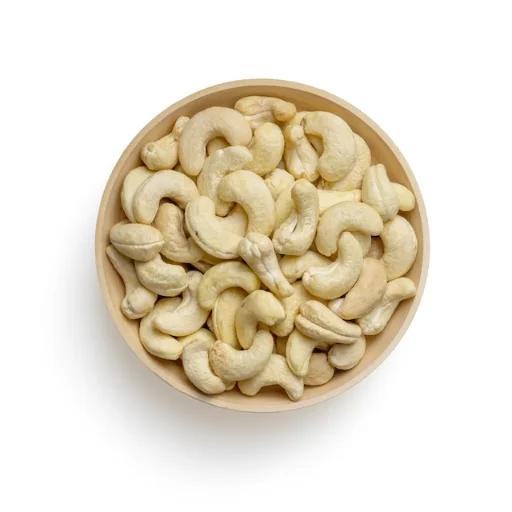
Cashews offer a range of benefits for women’s health. Packed with essential nutrients, these kidney-shaped nuts can contribute to overall well-being, support specific aspects of women’s health, and promote vitality. Let’s explore the amazing benefits of cashews for women:
- Heart Health: Cashews contain healthy fats, including monounsaturated and polyunsaturated fats, which can help support heart health. These fats have been linked to a reduced risk of heart disease and improved cardiovascular function. Cashews are also rich in magnesium, which helps regulate blood pressure and maintain a healthy heartbeat.
- Bone Health: Cashews provide important minerals for bone health, such as calcium, magnesium, and phosphorus. These minerals contribute to maintaining strong and healthy bones, reducing the risk of osteoporosis and fractures, which are more common in women.
- Hormonal Balance: Cashews contain zinc, a mineral that plays a role in hormonal balance. Zinc is involved in the synthesis and metabolism of hormones, including those related to reproductive health. Consuming cashews can help support healthy hormone production and balance.
- Energy and Vitality: Cashews are a good source of energy due to their combination of healthy fats, protein, and carbohydrates. They provide sustained energy and can help combat fatigue, which is particularly beneficial for women managing busy schedules and responsibilities.
- Mood and Well-being: Cashews contain amino acids, including tryptophan, which is a precursor to serotonin, a neurotransmitter involved in mood regulation. Serotonin is known as the “feel-good” hormone and plays a role in promoting positive mood and emotional well-being. Including cashews in your diet can help support balanced moods and emotional health.
- Nutrient Support during Pregnancy and Menopause: Cashews offer various nutrients that are important during pregnancy and menopause. They provide folate, which is crucial for fetal development during pregnancy, and vitamins and minerals that support overall well-being during menopause, such as vitamin E and magnesium.
It’s important to note that while cashews offer these benefits, they work best as part of an overall healthy lifestyle that includes regular exercise, a balanced diet, sufficient sleep, stress management, and other self-care practices. Additionally, individual needs and responses may vary. If you have specific health concerns, it’s always advisable to consult with a healthcare professional for personalized advice.
So, embrace the nutty power of cashews and enjoy the benefits they offer for women’s health. Whether you snack on them, incorporate cashews into your meals, or use cashew butter in recipes, you can support your overall well-being and promote vitality with the help of these delicious nuts!
FAQs:
It’s always advisable to consult with a registered dietitian or healthcare professional for personalized advice on portion sizes, calorie needs, and dietary strategies that align with your individual goals and health conditions.
So, while cashews can be enjoyed as part of a weight loss plan for women, it’s important to practice portion control, include a variety of nutrient-rich foods, and follow a well-rounded approach to nutrition and lifestyle.
6. Benefits of cashew for kids:

Cashews offer several benefits for kids’ health and development. These tasty nuts are packed with essential nutrients that support growth, cognitive function, and overall well-being. Here are some of the key benefits of cashews for kids:
- Nutrient-Rich: Cashews are a good source of various nutrients, including protein, healthy fats, vitamins, and minerals. They provide important nutrients for growing children, such as magnesium, phosphorus, and zinc, which are crucial for bone development, energy production, and immune function.
- Growth and Development: Cashews contain protein, which is essential for the growth and repair of tissues in the body. Protein supports the development of muscles, bones, and organs in children. Cashews also provide vitamins and minerals that contribute to overall growth and development.
- Brain Health: Cashews are rich in nutrients that support brain health and cognitive function in children. They contain vitamins E and B6, which are important for memory, concentration, and brain development. The healthy fats in cashews, such as omega-3 fatty acids, also play a role in brain health and can support optimal cognitive function.
- Energy and Satiety: Cashews are a good source of energy due to their combination of healthy fats, protein, and carbohydrates. Including cashews in kids’ diets can provide sustained energy and help keep them feeling satisfied between meals. This can be particularly beneficial for active children who require energy for play, sports, and learning.
- Immune Support: Cashews contain important vitamins and minerals that support a healthy immune system. Vitamin E and zinc found in cashews play a role in immune function and can help protect children against common illnesses. A strong immune system is crucial for children’s overall health and well-being.
- Healthy Snack Option: Cashews make for a convenient and nutritious snack option for kids. They are portable, easy to eat, and provide a satisfying crunch. As an alternative to processed snacks, cashews can be a healthier choice that offers a balance of nutrients.
It’s important to note that while cashews offer these benefits, they should be introduced into a child’s diet based on age-appropriate portion sizes and considering any allergies or sensitivities. Cashews are a potential allergen, so it’s important to be cautious and monitor any allergic reactions. If you have specific concerns or questions regarding your child’s diet, it’s always advisable to consult with a pediatrician or registered dietitian for personalized advice.
So, incorporating cashews into your child’s diet can provide them with a range of essential nutrients and contribute to their growth, brain health, and overall well-being.
6.1 How many cashews can a 4 year old eat:
When determining the appropriate portion size of cashews for a 4-year-old child, it’s important to consider factors such as their individual dietary needs, overall health, and any allergies or sensitivities. As a general guideline, a 4-year-old child can typically consume a smaller portion compared to adults. Here are some considerations:
- Age-appropriate portion: For young children, it’s best to start with smaller portions and monitor their response. Generally, 4-year-olds can safely consume about 1 to 2 tablespoons of cashews as a snack.
- Allergy and choking hazards: Cashews are a potential allergen, so it’s important to introduce them to your child’s diet with caution. Start by offering a small amount and observe if there are any adverse reactions. Additionally, ensure that cashews are chopped into small pieces to reduce the risk of choking.
- Balanced diet: Cashews should be considered as part of a balanced and varied diet for children. It’s important to offer a wide range of nutrient-rich foods to meet their overall nutritional needs. Cashews can be included as a healthy snack option alongside other fruits, vegetables, grains, and proteins.
Remember, every child is unique, and their dietary needs can vary. It’s always advisable to consult with a pediatrician or a registered dietitian for personalized recommendations based on your child’s specific health condition, dietary restrictions, and individual requirements.
By incorporating cashews in an appropriate portion size as part of a balanced diet, you can offer your 4-year-old child the nutritional benefits of these nuts while ensuring their overall health and well-being
6.2 How many cashews can a toddler eat:
When it comes to feeding cashews to toddlers, it’s important to take certain factors into consideration, such as their age, chewing ability, any allergies or sensitivities, and individual dietary needs. Here are some general guidelines:
- Age-appropriate portion: Toddlers have smaller appetites and may not be able to consume large quantities of food. For toddlers between 1-3 years old, it’s recommended to start with a small portion size. Generally, a toddler can safely consume around 1-2 cashews as a snack.
- Allergy and choking hazards: Cashews are a potential allergen, so it’s crucial to introduce them carefully. Start with a very small portion and observe if there are any allergic reactions. Also, ensure that cashews are chopped or crushed into small, manageable pieces to minimize the risk of choking.
- Texture and chewing ability: Consider your toddler’s ability to chew and manage the texture of cashews. If your toddler has difficulty chewing harder foods, you may want to opt for cashew butter or finely ground cashews to make it easier for them to consume.
- Balanced diet: Cashews should be part of a balanced and varied diet for toddlers. Offer a wide range of nutrient-rich foods, including fruits, vegetables, whole grains, and other protein sources, to ensure they receive a diverse array of nutrients necessary for their growth and development.
Always consult with your pediatrician or a registered dietitian before introducing any new food to your toddler’s diet, especially if they have specific dietary restrictions, allergies, or medical conditions. They can provide personalized guidance and recommendations based on your child’s individual needs.
By offering an appropriate portion size of cashews and considering your toddler’s specific circumstances, you can incorporate these nuts as a nutritious and tasty addition to their diet while ensuring their safety and well-being.
6.3 How many cashews can a 2 year old eat:
When it comes to feeding cashews to a 2-year-old, it’s important to consider their individual dietary needs, chewing ability, and any allergies or sensitivities. Here are some general guidelines:
- Age-appropriate portion: Toddlers have smaller appetites and may not be able to consume large quantities of food. For a 2-year-old, it’s recommended to start with a small portion size. Generally, a toddler can safely consume around 1-2 cashews as a snack.
- Allergy and choking hazards: Cashews are a potential allergen, so it’s crucial to introduce them carefully. Start with a very small portion and observe if there are any allergic reactions. Additionally, ensure that cashews are chopped or crushed into small, manageable pieces to minimize the risk of choking.
- Texture and chewing ability: Consider your toddler’s ability to chew and manage the texture of cashews. If your 2-year-old has difficulty chewing harder foods, you may want to opt for cashew butter or finely ground cashews to make it easier for them to consume.
- Balanced diet: Cashews should be part of a balanced and varied diet for toddlers. Offer a wide range of nutrient-rich foods, including fruits, vegetables, whole grains, and other protein sources, to ensure they receive a diverse array of nutrients necessary for their growth and development.
Always consult with your pediatrician or a registered dietitian before introducing any new food to your child’s diet, especially if they have specific dietary restrictions, allergies, or medical conditions. They can provide personalized guidance and recommendations based on your child’s individual needs.
By offering an appropriate portion size of cashews and considering your 2-year-old’s specific circumstances, you can incorporate these nuts as a nutritious and tasty addition to their diet while ensuring their safety and well-being.
6.4 How many cashews can a 3 year old eat:
When it comes to feeding cashews to a 3-year-old, it’s important to consider their individual dietary needs, chewing ability, and any allergies or sensitivities. Here are some general guidelines:
- Age-appropriate portion: For a 3-year-old, it’s recommended to start with a small portion size of cashews. Generally, a toddler can safely consume around 1-2 cashews as a snack.
- Allergy and choking hazards: Cashews are a potential allergen, so it’s crucial to introduce them carefully. Start with a very small portion and observe if there are any allergic reactions. Additionally, ensure that cashews are chopped or crushed into small, manageable pieces to minimize the risk of choking.
- Texture and chewing ability: Consider your child’s ability to chew and manage the texture of cashews. By the age of 3, most children have developed more advanced chewing skills. However, if your child still has difficulty chewing harder foods, you may want to opt for cashew butter or finely ground cashews to make it easier for them to consume.
- Balanced diet: Cashews should be part of a balanced and varied diet for toddlers. Offer a wide range of nutrient-rich foods, including fruits, vegetables, whole grains, and other protein sources, to ensure they receive a diverse array of nutrients necessary for their growth and development.
Always consult with your pediatrician or a registered dietitian before introducing any new food to your child’s diet, especially if they have specific dietary restrictions, allergies, or medical conditions. They can provide personalized guidance and recommendations based on your child’s individual needs.
By offering an appropriate portion size of cashews and considering your 3-year-old’s specific circumstances, you can incorporate these nuts as a nutritious and tasty addition to their diet while ensuring their safety and well-being.
FAQs:
Remember, these are general guidelines, and it’s always advisable to consult with a healthcare professional or registered dietitian for personalized advice based on your child’s specific needs, allergies, and overall health.
7. Benefits of cashew nuts for teeth:
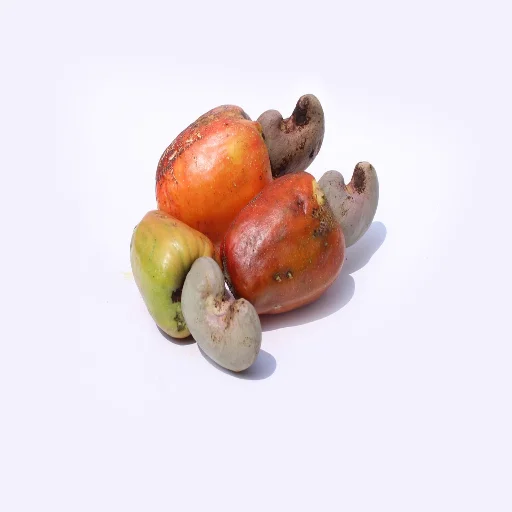
Cashew nuts offer several benefits for dental health and can contribute to maintaining healthy teeth and gums. Here are some key benefits of cashew nuts for teeth:
- Nutrient-rich: Cashew nuts are packed with essential nutrients like calcium, magnesium, and phosphorus, which are crucial for maintaining strong and healthy teeth. These minerals play a vital role in enamel formation and remineralization, helping to prevent tooth decay and cavities.
- Natural cleaning action: Chewing cashew nuts can help stimulate saliva production, which plays a significant role in maintaining oral health. Saliva helps to neutralize acids in the mouth, wash away food particles and bacteria, and protect the teeth against plaque buildup. The mechanical action of chewing cashews can also help remove plaque and debris from the tooth surfaces.
- Antibacterial properties: Cashew nuts contain compounds that have antimicrobial properties, which can help combat harmful bacteria in the mouth. These bacteria contribute to tooth decay, gum disease, and bad breath. Consuming cashew nuts as part of a balanced diet can help inhibit the growth of harmful bacteria and promote a healthier oral environment.
- Gum health: The nutrients in cashew nuts, such as vitamin C and antioxidants, can contribute to gum health. Vitamin C is essential for collagen production, which helps maintain the integrity of the gum tissues. Antioxidants help reduce inflammation and protect gum tissues from damage caused by free radicals.
- Nutritious alternative: Cashew nuts can be a healthier alternative to sugary snacks and processed foods that are detrimental to dental health. Choosing cashews as a snack option can help reduce the consumption of sugary and acidic foods that contribute to tooth decay and gum disease.
While cashew nuts offer benefits for dental health, it’s important to remember that maintaining good oral hygiene practices, such as regular brushing, flossing, and dental check-ups, is crucial for overall oral health. Cashew nuts should be consumed as part of a balanced diet, alongside other oral health practices, to support healthy teeth and gums.
FAQs:
However, it’s important to note that while certain foods can support oral health, maintaining good oral hygiene practices, such as regular brushing, flossing, and dental check-ups, is crucial for overall dental health. A balanced diet that includes a variety of nutrient-rich foods, along with proper oral hygiene habits, will help promote strong and healthy teeth.
8. Benefits of cashew nuts for eyes:

Cashew nuts offer several benefits for eye health due to their nutritional profile. Here are some key benefits of cashew nuts for the eyes:
- Antioxidant protection: Cashew nuts contain antioxidants like vitamin E and lutein, which help protect the eyes against oxidative stress caused by free radicals. Oxidative stress can contribute to age-related macular degeneration (AMD) and other eye conditions. Consuming cashew nuts as part of a balanced diet rich in antioxidants can support overall eye health.
- Macular health: Lutein and zeaxanthin, two antioxidants found in cashews, are particularly beneficial for the macula, the central part of the retina responsible for sharp and detailed vision. These antioxidants help filter harmful blue light and protect the macula from damage caused by ultraviolet (UV) light exposure.
- Nutrient support: Cashew nuts provide essential nutrients that support eye health, such as zinc and vitamin C. Zinc plays a role in transporting vitamin A from the liver to the retina, where it is converted to melanin, a protective pigment for the eyes. Vitamin C supports the health of blood vessels in the eyes and may help reduce the risk of cataracts.
- Blood circulation: Cashew nuts contain healthy fats, including monounsaturated fats, which support cardiovascular health and promote proper blood circulation. Good blood circulation is important for delivering oxygen and nutrients to the eyes and maintaining optimal eye function.
- Eye lubrication: Cashew nuts also contain omega-3 fatty acids, which contribute to healthy tear production and lubrication of the eyes. Adequate tear production helps prevent dry eyes and maintains the ocular surface, reducing the risk of eye discomfort and irritation.
While cashew nuts offer benefits for eye health, it’s important to note that they should be consumed as part of a well-rounded diet that includes a variety of fruits, vegetables, and other nutrient-rich foods. Regular eye exams, proper eye protection from UV rays, and healthy lifestyle habits also play crucial roles in maintaining optimal eye health. If you have specific concerns or conditions related to your eyes, it’s always best to consult with an eye care professional for personalized advice.
FAQs:
9. Benefits of cashew nuts for weight gain:

Cashew nuts can be a beneficial addition to a weight gain diet due to their nutrient content and calorie density. Here are some benefits of cashew nuts for weight gain:
- Calorie-dense: Cashew nuts are relatively high in calories compared to other nuts. A 1-ounce (28-gram) serving of cashew nuts provides around 157 calories, making them a convenient and calorie-dense snack option for individuals looking to gain weight. Consuming cashews in moderation can help increase overall calorie intake and support weight gain efforts.
- Healthy fats: Cashew nuts contain mostly unsaturated fats, including monounsaturated and polyunsaturated fats. These healthy fats provide concentrated energy and can help increase caloric intake without consuming excessive amounts of unhealthy saturated fats. Including moderate amounts of cashews in a balanced diet can contribute to healthy weight gain.
- Protein content: Cashew nuts also provide a moderate amount of protein. Protein is essential for muscle growth and repair, which is important when aiming to gain weight in the form of lean muscle mass. Including protein-rich foods like cashews in your diet can support muscle development and contribute to healthy weight gain.
- Nutrient profile: Cashew nuts are a good source of various nutrients, including vitamins and minerals. They contain important minerals like magnesium, phosphorus, and zinc, which support overall health and wellbeing. When trying to gain weight, it’s important to focus on nutrient-dense foods, and cashew nuts can be a part of a balanced diet that provides essential nutrients.
- Versatility in meals and snacks: Cashew nuts can be enjoyed in various ways, making them a versatile addition to meals and snacks. They can be eaten on their own as a snack, added to trail mixes, sprinkled on salads or stir-fries, or used as a base for creamy sauces and dressings. Incorporating cashew nuts into your meals and snacks can help increase calorie and nutrient intake for weight gain.
It’s important to note that while cashew nuts can be beneficial for weight gain, it’s crucial to consider overall dietary balance and consume a variety of nutrient-rich foods to support overall health. Consulting with a healthcare professional or registered dietitian is recommended for personalized advice on weight gain strategies and dietary plans.
9.1 Best time to eat nuts for weight gain:
The timing of nut consumption can vary depending on individual preferences and dietary needs. However, here are a few suggestions on the best times to eat nuts for weight gain:
- As a snack between meals: Consuming nuts as a snack between meals can be an effective way to increase your calorie intake. Nuts provide a good balance of healthy fats, protein, and fiber, which can help keep you satiated and provide a steady source of energy throughout the day.
- Pre-workout or post-workout: Eating nuts before or after a workout can be beneficial for weight gain, especially if you’re engaging in strength training or muscle-building exercises. Nuts are a good source of protein, which is important for muscle repair and growth. Consuming them before or after a workout can provide the necessary nutrients to support muscle development.
- As part of meals: Including nuts in your meals can help increase the overall calorie and nutrient content of your diet. Adding nuts to salads, stir-fries, oatmeal, yogurt, or smoothies can enhance the flavor, texture, and nutritional value of your meals.
- Before bed: Eating a small portion of nuts before bed can be beneficial for weight gain, especially if you struggle with a poor appetite in the morning. Nuts provide a good source of calories and can help prevent overnight muscle breakdown.
Remember that portion control is important when consuming nuts, as they are calorie-dense. While nuts can be beneficial for weight gain, it’s essential to maintain a balanced diet and incorporate a variety of other nutrient-rich foods. It’s always a good idea to consult with a healthcare professional or registered dietitian for personalized advice on the best timing and amount of nuts to include in your diet for weight gain.
9.2 How many cashews a day for weight gain?
- The number of cashews you should consume per day for weight gain depends on your overall calorie needs and dietary goals. Cashews are calorie-dense, so incorporating them into your diet can help increase your calorie intake and support weight gain. However, it’s important to strike a balance and consider the overall nutrient composition of your diet.
- As a general guideline, a serving size of cashews is typically around 1 ounce (28 grams), which is approximately 18 cashews. This serving size provides around 157 calories. If you’re looking to gain weight, you can start by including a serving of cashews in your daily diet and adjust the portion based on your individual needs and preferences.
- It’s important to note that weight gain should be approached in a healthy and balanced manner. Simply increasing your intake of cashews without considering other nutrient-rich foods may lead to an imbalance in your diet. Aim to include a variety of foods from different food groups to ensure you’re meeting your overall nutritional needs.
- If you’re unsure about the appropriate portion size or the specific dietary plan for your weight gain goals, it’s recommended to consult with a healthcare professional or a registered dietitian who can provide personalized guidance based on your individual needs and preferences.
FAQs:
10. Benefits of cashew nuts for weight loss:
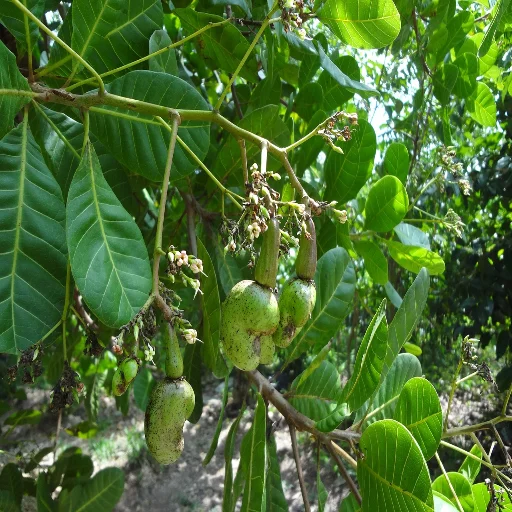
While cashew nuts are relatively calorie-dense, they can still be a part of a weight loss diet when consumed in moderation. Here are some benefits of cashew nuts for weight loss:
- Satiety and portion control: Cashew nuts are rich in healthy fats, protein, and fiber, which can help promote feelings of fullness and reduce cravings. Including cashew nuts as part of a balanced meal or snack can help you feel satisfied and potentially prevent overeating.
- Nutrient density: Despite being calorie-dense, cashew nuts provide a range of essential nutrients. They contain vitamins, minerals, and antioxidants that support overall health. When trying to lose weight, it’s important to focus on nutrient-dense foods, and cashew nuts can contribute to a well-rounded diet.
- Healthy fats: Cashew nuts primarily consist of heart-healthy monounsaturated fats, which have been associated with various health benefits. These fats can help keep you satisfied and provide a source of energy while supporting optimal bodily functions.
- Protein content: Cashew nuts also contain protein, which is an important macronutrient for weight loss. Protein helps to boost metabolism, promote muscle growth and repair, and increase feelings of fullness. Including protein-rich foods like cashews in your diet can help support weight loss efforts.
- Versatility in meals: Cashew nuts can be a versatile addition to your meals and snacks. They can be used as a topping for salads, added to stir-fries, incorporated into homemade trail mixes, or blended into creamy sauces and dressings. This versatility allows you to enjoy the nutritional benefits of cashews while adding flavor and texture to your meals without sacrificing taste.
However, it’s crucial to remember that portion control is key when including cashew nuts in a weight loss diet. While they offer health benefits, they are still calorie-dense, so moderation is important to avoid consuming excess calories. It’s always a good idea to consult with a healthcare professional or registered dietitian for personalized advice on incorporating cashew nuts into your weight loss plan.
10.1 How many cashew nuts per day to lose weight:
- The number of cashew nuts you should consume per day for weight loss depends on various factors such as your overall calorie needs, dietary goals, and individual metabolism. While cashew nuts can be a part of a healthy weight loss diet, portion control is crucial due to their calorie density.
- As a general guideline, a serving size of cashew nuts is typically around 1 ounce (28 grams), which is roughly 18 cashews. This serving size provides around 157 calories. However, it’s important to consider your overall calorie intake and the context of your entire diet.
- If you’re aiming to lose weight, it’s recommended to incorporate cashew nuts in moderation and adjust the portion based on your individual needs and preferences. You may choose to have a small handful of cashew nuts as a snack or use them as an ingredient in meals or recipes.
- It’s important to note that while cashew nuts offer health benefits, they should be part of a well-rounded diet that includes a variety of nutrient-rich foods. To achieve weight loss, it’s important to create a calorie deficit by consuming fewer calories than you burn through physical activity and metabolism.
- Consulting with a healthcare professional or registered dietitian can provide you with personalized advice and guidance on the appropriate portion sizes, overall dietary plan, and calorie intake for your specific weight loss goals. They can help tailor a plan that meets your nutritional needs while promoting sustainable and healthy weight loss.
10.2 Best time to eat cashew nuts for weight loss:
- The timing of cashew nut consumption for weight loss is not as important as the overall balance of your diet and the total calories consumed throughout the day. However, here are a few suggestions on the best times to eat cashew nuts for weight loss:
- As a snack between meals: Cashew nuts can make a satisfying and nutritious snack option between meals. The combination of healthy fats, protein, and fiber in cashews can help keep you satiated and prevent overeating during your main meals.
- Pre-workout or post-workout: Including cashew nuts as part of a pre or post-workout snack can provide you with a source of energy and essential nutrients. The protein and healthy fats in cashews can help fuel your workout and support muscle recovery.
- As a topping for meals: Cashew nuts can be sprinkled on top of salads, yogurt, or stir-fries to add crunch, flavor, and nutritional value to your meals. This can help enhance the satiety of your meals and make them more satisfying.
- In moderation with meals: Cashew nuts can be incorporated into your main meals, such as stir-fries, curries, or grain bowls, to enhance their taste and nutritional content. However, it’s important to practice portion control and consider the overall calorie balance of your meal.
- Ultimately, the best time to eat cashew nuts for weight loss is when you feel hungry or need a nutritious snack. It’s important to be mindful of portion sizes and consider the overall calorie intake from cashew nuts within the context of your entire diet. Creating a calorie deficit through a balanced and nutrient-rich diet, along with regular physical activity, is key for weight loss.
- Remember, it’s always recommended to consult with a healthcare professional or registered dietitian for personalized advice on the best timing and amount of cashew nuts to include in your weight loss plan based on your individual needs and goals.
FAQs:
11. Benefits of cashew nuts for Gym:
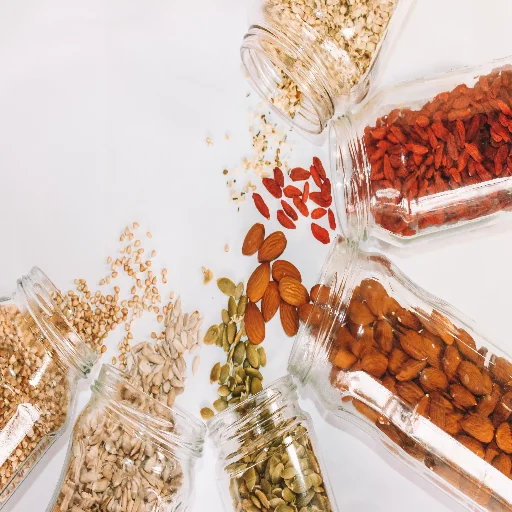
Cashew nuts can offer several benefits for individuals who engage in gym workouts and exercise. Here are some benefits of cashew nuts for gym-goers:
- Energy source: Cashew nuts are a good source of healthy fats, which provide a concentrated form of energy. These fats can serve as a valuable fuel source during workouts, helping to sustain energy levels and enhance endurance.
- Protein content: Cashew nuts contain protein, which is crucial for muscle repair and growth. Including cashew nuts in your diet can help support muscle recovery after intense workouts and provide amino acids needed for muscle tissue repair.
- Nutrient profile: Cashew nuts offer a range of vitamins and minerals, including magnesium, zinc, and iron, which are important for overall health and optimal performance during exercise. These nutrients play key roles in muscle function, energy production, and immune function.
- Heart-healthy fats: Cashew nuts are primarily composed of monounsaturated fats, which are beneficial for heart health. Regular consumption of cashew nuts, along with a balanced diet, can help maintain healthy cholesterol levels and support cardiovascular well-being, allowing for better endurance during gym sessions.
- Satiety and weight management: Despite being calorie-dense, cashew nuts can contribute to feelings of fullness and satiety due to their healthy fat and protein content. Including cashew nuts as part of a balanced snack or meal can help control appetite and prevent overeating, supporting weight management goals.
While cashew nuts offer benefits for gym-goers, it’s important to consume them in moderation and consider your overall calorie and nutrient needs. It’s also crucial to combine a balanced diet with regular exercise and proper hydration for optimal gym performance and overall fitness. Consulting with a healthcare professional or registered dietitian can provide personalized advice and guidance on incorporating cashew nuts into your diet to support your gym routine and fitness goals.
FAQs:
12. Benefits of cashew nuts for runners:

Cashew nuts can provide several benefits for runners, helping to support their performance, recovery, and overall health. Here are some benefits of cashew nuts for runners:
- Energy source: Cashew nuts are a rich source of healthy fats, which serve as a concentrated form of energy. These fats can provide sustained fuel during long-distance runs or intense training sessions, helping to maintain energy levels and enhance endurance.
- Muscle recovery: Cashew nuts contain protein, which is crucial for muscle repair and recovery. Including cashew nuts in your diet after a run can help support muscle tissue repair and provide the necessary amino acids for recovery and growth.
- Nutrient density: Cashew nuts are packed with essential nutrients, including magnesium, zinc, iron, and vitamin E, which are important for runners. These nutrients play roles in muscle function, oxygen transport, energy production, and immune support, all of which are vital for optimal running performance.
- Anti-inflammatory properties: Cashew nuts contain antioxidants and anti-inflammatory compounds, such as vitamin E and various phytochemicals. These properties can help reduce exercise-induced inflammation and support faster recovery after intense training sessions or races.
- Heart health: Cashew nuts are primarily composed of monounsaturated fats, which are beneficial for heart health. Regular consumption of cashew nuts, along with a balanced diet, can help maintain healthy cholesterol levels and support cardiovascular well-being, which is essential for runners’ overall endurance and performance.
Including a moderate serving of cashew nuts as part of a balanced diet can provide these benefits for runners. However, it’s important to practice portion control due to their calorie density. Consulting with a healthcare professional or registered dietitian can provide personalized advice on the appropriate portion sizes and overall dietary plan to support your running goals.
FAQs:
It’s important to note that individual needs and dietary preferences can vary. Consulting with a healthcare professional or registered dietitian can provide personalized advice based on your specific nutritional requirements and fitness goals.
13. Benefits of eating cashew nuts in morning:
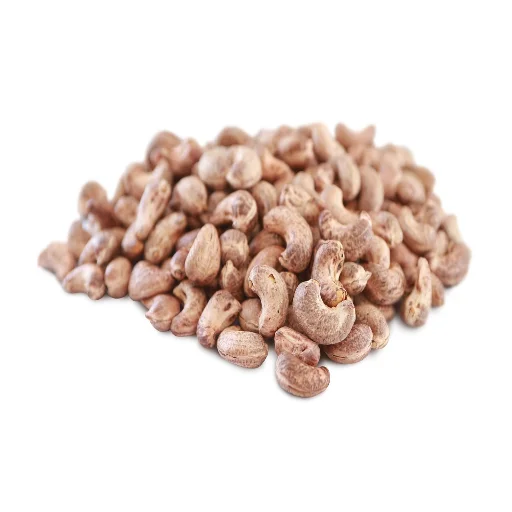
Eating cashew nuts in the morning can offer several benefits for your overall health and well-being. Here are some benefits of including cashew nuts in your morning routine:
- Energy boost: Cashew nuts are a rich source of healthy fats, proteins, and carbohydrates. Consuming cashews in the morning can provide a quick and sustained energy boost to start your day. The combination of nutrients helps fuel your body and provides the necessary energy for daily activities.
- Nutrient-dense: Cashew nuts are packed with essential nutrients, including vitamins E, K, and B6, as well as minerals such as magnesium, zinc, and phosphorus. By incorporating cashews into your morning routine, you can benefit from these nutrients, which support various bodily functions, including immune health, bone strength, and energy metabolism.
- Satiety and weight management: Despite being calorie-dense, cashew nuts can help promote satiety and prevent overeating throughout the day. The combination of healthy fats, protein, and fiber in cashews can keep you feeling full and satisfied, reducing the likelihood of reaching for unhealthy snacks or overindulging in later meals.
- Heart health: Cashew nuts are primarily composed of monounsaturated fats, which are heart-healthy fats. Including cashews in your morning routine can contribute to maintaining healthy cholesterol levels, reducing the risk of cardiovascular diseases, and supporting overall heart health.
- Cognitive function: Cashew nuts contain nutrients like magnesium, zinc, and vitamin E, which are beneficial for brain health. Consuming cashews in the morning can support cognitive function, improve focus, and enhance mental clarity throughout the day.
To enjoy the benefits of cashew nuts in the morning, you can incorporate them into your breakfast routine in various ways. Add a handful of cashews to your cereal, oatmeal, or yogurt. You can also blend them into smoothies or sprinkle them over toast or pancakes. Remember to practice portion control, as cashew nuts are calorie-dense. Aim for a moderate serving size to reap the nutritional benefits without overdoing the calorie intake.
FAQs:
14. Benefits of eating cashew nuts at night:
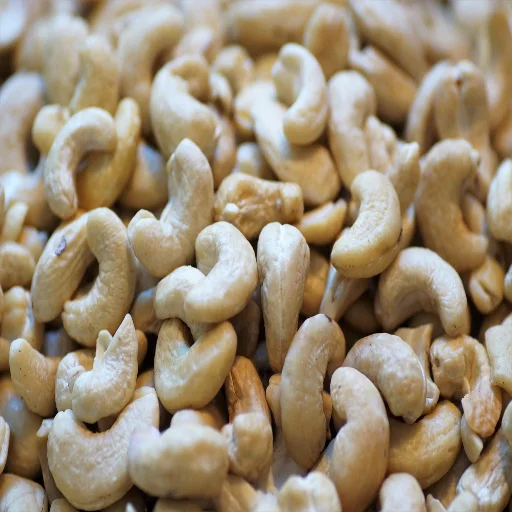
Eating cashew nuts at night can offer several benefits for your health and well-being. Here are some benefits of including cashew nuts in your nighttime routine:
- Sleep support: Cashew nuts contain tryptophan, an amino acid that is a precursor to the sleep hormone melatonin. Consuming cashew nuts at night can promote relaxation, help regulate sleep patterns, and support a good night’s sleep. The combination of healthy fats and protein in cashews can also help stabilize blood sugar levels, preventing disruptions in sleep caused by fluctuations in glucose levels.
- Satiety and weight management: Despite being calorie-dense, cashew nuts can help promote satiety and prevent nighttime cravings. The combination of healthy fats, protein, and fiber in cashews can keep you feeling full and satisfied, reducing the likelihood of snacking on unhealthy foods before bedtime. This can support weight management goals and prevent overeating at night.
- Nutrient intake: Cashew nuts are a good source of essential nutrients, including vitamins E, K, and B6, as well as minerals like magnesium, zinc, and phosphorus. By consuming cashew nuts at night, you can benefit from these nutrients, which play crucial roles in various bodily functions, including immune health, muscle function, and bone strength.
- Heart health: Cashew nuts are primarily composed of monounsaturated fats, which are heart-healthy fats. Including cashews in your nighttime routine can contribute to maintaining healthy cholesterol levels and supporting overall cardiovascular health.
- Stress reduction: Cashew nuts contain nutrients like magnesium and vitamin B6, which are known for their stress-reducing properties. Consuming cashews at night can help promote relaxation, reduce anxiety, and support overall mental well-being.
To enjoy the benefits of cashew nuts at night, you can have a small handful of cashews as a bedtime snack. Remember to practice portion control, as cashews are calorie-dense. Aim for a moderate serving size to reap the nutritional benefits without overdoing the calorie intake. It’s important to consider individual dietary needs and any specific health concerns when incorporating cashews into your nighttime routine. Consulting with a healthcare professional or registered dietitian can provide personalized advice based on your specific nutritional requirements.
15. Benefits of eating cashew on empty stomach:

Eating cashews on an empty stomach can provide several benefits for your health and well-being. Here are some benefits of including cashews in your diet on an empty stomach:
- Quick energy boost: Cashews are rich in healthy fats, proteins, and carbohydrates, which can provide a quick and sustained energy boost when consumed on an empty stomach. These nutrients are easily digested and can be readily converted into energy, helping you feel energized and ready to start your day.
- Nutrient absorption: Consuming cashews on an empty stomach can enhance the absorption of nutrients present in the nuts. Cashews are a good source of various vitamins, minerals, and antioxidants that are essential for overall health. When eaten on an empty stomach, the body can efficiently absorb these nutrients, maximizing their benefits.
- Digestive health: Cashews are a good source of dietary fiber, which aids in digestion and promotes a healthy digestive system. Eating cashews on an empty stomach can help stimulate bowel movements and prevent constipation. The fiber content also promotes satiety and can help control appetite throughout the day.
- Blood sugar regulation: Cashews have a low glycemic index, which means they have a minimal impact on blood sugar levels. Consuming cashews on an empty stomach can help stabilize blood sugar levels, preventing spikes and crashes in glucose levels. This can be particularly beneficial for individuals with diabetes or those aiming to maintain stable blood sugar levels.
- Heart health: Cashews contain monounsaturated fats, which are heart-healthy fats. When eaten on an empty stomach, cashews can contribute to maintaining healthy cholesterol levels and reducing the risk of cardiovascular diseases. The combination of healthy fats, protein, and fiber in cashews can also help promote a healthy weight, which is beneficial for heart health.
To enjoy the benefits of cashews on an empty stomach, you can have a small handful of cashews as a standalone snack or incorporate them into your morning routine. It’s important to note that while cashews offer health benefits, they are calorie-dense, so it’s crucial to practice portion control to avoid excessive calorie intake. As with any dietary changes, it’s recommended to listen to your body and adjust your eating habits based on your individual needs and preferences. If you have specific dietary concerns or health conditions, consulting with a healthcare professional or registered dietitian can provide personalized advice tailored to your needs.
FAQs:
It’s worth noting that individual responses to food and health outcomes can vary. If you have specific dietary concerns or health conditions, it’s recommended to consult with a healthcare professional or registered dietitian who can provide personalized advice based on your individual needs.
16. Benefits of eating cashew nuts with milk:

Eating cashew nuts with milk can offer several benefits for your health. Here are some benefits of combining cashew nuts with milk:
- Nutrient-rich combination: Cashew nuts and milk are both nutrient-dense foods. Cashew nuts provide healthy fats, protein, dietary fiber, vitamins, and minerals, while milk is a good source of calcium, protein, vitamins, and minerals. Consuming cashew nuts with milk creates a well-rounded combination that can contribute to meeting your daily nutrient needs.
- Enhanced protein intake: Cashew nuts are relatively high in protein, and when combined with milk, which is also rich in protein, the overall protein content of the meal increases. Protein is essential for various functions in the body, including muscle growth and repair, hormone production, and immune function. Consuming cashew nuts with milk can provide a good source of high-quality protein.
- Bone health support: Cashew nuts and milk both contain nutrients that are important for bone health, such as calcium, magnesium, and phosphorus. Combining cashew nuts with milk can provide a good dose of these minerals, supporting strong bones and helping prevent conditions like osteoporosis.
- Satiety and weight management: The combination of cashew nuts’ healthy fats, protein, and fiber with the satiating properties of milk can help promote feelings of fullness and reduce overeating. This can be beneficial for weight management and preventing excessive calorie intake.
- Improved digestion: Cashew nuts and milk are both easy to digest. The fiber in cashew nuts and the lactose in milk can contribute to healthy digestion. Additionally, cashew nuts contain enzymes that aid in the breakdown of proteins, making them easier to digest.
To enjoy the benefits of eating cashew nuts with milk, you can incorporate them into your diet in various ways. For example, you can add crushed or chopped cashew nuts to your cereal, oatmeal, or smoothies made with milk. You can also enjoy cashew milk, which is a dairy-free alternative made from blending cashew nuts with water. However, it’s important to note that individual dietary needs and preferences may vary, so it’s always beneficial to listen to your body and adjust your choices accordingly.
If you have specific dietary concerns or health conditions, it’s recommended to consult with a healthcare professional or registered dietitian who can provide personalized advice based on your individual needs.
FAQs:
Mixing cashew nuts with milk can offer a range of health benefits, including increased protein intake, improved nutrient absorption, support for bone health, and enhanced satiety. However, it’s important to consider any personal dietary preferences or allergies. If you have specific dietary concerns or health conditions, it’s advisable to consult with a healthcare professional or registered dietitian who can provide personalized advice based on your individual needs.
17. Benefits of eating cashew nuts with honey:
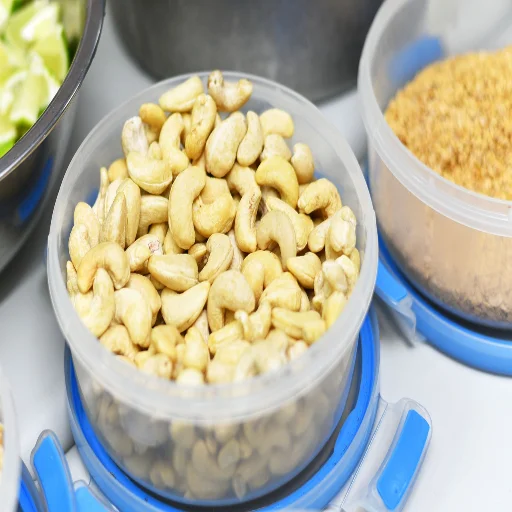
Eating cashew nuts with honey can provide a delightful combination of flavors and offer several benefits for your health. Here are some benefits of enjoying cashew nuts with honey:
- Energy boost: Cashew nuts are a rich source of healthy fats, protein, and dietary fiber, while honey is a natural source of carbohydrates. When combined, cashew nuts and honey can provide a balanced mix of macronutrients that can give you an instant energy boost. This can be particularly beneficial as a pre- or post-workout snack or when you need a quick pick-me-up during the day.
- Nutrient absorption: Honey contains enzymes that aid in the digestion and absorption of nutrients. When consumed with cashew nuts, these enzymes can help the body better absorb the vitamins, minerals, and other beneficial compounds present in cashews. This can maximize the nutritional benefits you receive from eating cashews.
- Satiety and appetite control: The combination of cashew nuts’ protein, healthy fats, and dietary fiber with the natural sweetness of honey can help promote satiety and reduce cravings. The protein and fiber content in cashews, along with the slow-release carbohydrates in honey, can help keep you feeling full for longer and prevent overeating.
- Anti-inflammatory properties: Both cashew nuts and honey possess anti-inflammatory properties. Cashews contain compounds like antioxidants and polyphenols, while honey contains antioxidants and antimicrobial agents. Consuming cashew nuts with honey can provide a synergistic effect, supporting the body’s natural anti-inflammatory processes.
- Antioxidant and immune support: Cashew nuts and honey are rich in antioxidants, which help protect the body against oxidative stress and free radicals. These antioxidants can support a healthy immune system and overall well-being. The combination of cashews and honey can provide a potent dose of antioxidants to support immune function.
When enjoying cashew nuts with honey, it’s important to practice moderation. Both cashew nuts and honey are calorie-dense, so portion control is key, especially if you are watching your calorie intake. It’s also important to choose high-quality honey that is pure and preferably raw to ensure you’re getting the full range of health benefits.
As with any dietary choices, it’s recommended to consider your individual nutritional needs and preferences. If you have specific dietary concerns or health conditions, it’s advisable to consult with a healthcare professional or registered dietitian for personalized advice.
FAQs:
As with any dietary choices, it’s recommended to consider your individual nutritional needs and preferences. If you have specific dietary concerns or health conditions, it’s advisable to consult with a healthcare professional or registered dietitian for personalized advice.
18. Benefits of eating cashew for bones:
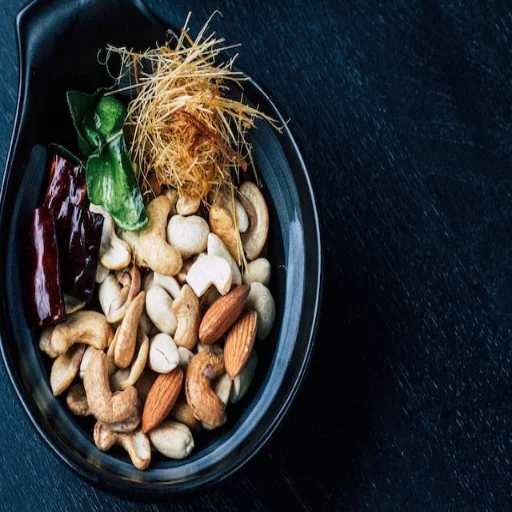
Cashews offer several benefits for bone health due to their nutrient profile. Here are some of the benefits of eating cashews for bones:
- Calcium content: Cashews contain a moderate amount of calcium, which is an essential mineral for building and maintaining strong bones. Adequate calcium intake is crucial for bone density and preventing conditions like osteoporosis. Incorporating cashews into your diet can contribute to your overall calcium intake and support bone health.
- Magnesium content: Cashews are a good source of magnesium, another mineral that plays a role in bone health. Magnesium helps with the absorption and metabolism of calcium, and it is involved in the formation of the bone mineral matrix. Consuming cashews can provide a dietary source of magnesium, which supports the overall health and strength of your bones.
- Phosphorus content: Phosphorus is another mineral found in cashews that is essential for bone health. It works in conjunction with calcium to form hydroxyapatite, a mineral complex that gives bones their strength and structure. Cashews provide a dietary source of phosphorus, ensuring an adequate intake to support bone mineralization.
- Vitamin K: Cashews contain vitamin K, which plays a vital role in bone metabolism and blood clotting. Vitamin K is involved in the production of osteocalcin, a protein that helps bind calcium to the bone matrix. Including cashews in your diet can contribute to your vitamin K intake, promoting optimal bone health.
- Antioxidant properties: Cashews possess antioxidant compounds such as vitamin E, which helps protect cells from oxidative damage. Oxidative stress can lead to bone loss and deteriorate bone health. The antioxidants present in cashews can help counteract oxidative stress and maintain the integrity of bone tissues.
Incorporating cashews into a well-balanced diet, along with other bone-supportive foods, can contribute to overall bone health. However, it’s important to note that maintaining bone health is a multifactorial process that also requires regular exercise, adequate vitamin D intake, and a healthy lifestyle overall.
If you have specific concerns about your bone health or dietary needs, it’s advisable to consult with a healthcare professional or registered dietitian for personalized advice.
FAQs:
19. Benefits of eating roasted cashew nuts:

Eating roasted cashew nuts can provide a delicious and nutritious snack option with several benefits. Here are some of the benefits of eating roasted cashew nuts:
- Nutrient-dense: Cashew nuts are packed with essential nutrients. They are a good source of healthy fats, including monounsaturated fats, which can help promote heart health. They also provide protein, dietary fiber, vitamins (such as vitamin E, vitamin K, and B vitamins), and minerals (such as magnesium, phosphorus, zinc, and selenium). Roasted cashew nuts retain their nutrient content, making them a convenient and nutritious snack choice.
- Antioxidant properties: Roasted cashew nuts contain antioxidants, including vitamin E and other bioactive compounds. Antioxidants help protect cells from oxidative stress caused by free radicals, which can contribute to chronic diseases and aging. Including roasted cashew nuts in your diet can provide these antioxidants, supporting overall health and well-being.
- Energy boost: Cashew nuts are calorie-dense and provide a good amount of healthy fats, protein, and carbohydrates. This combination of macronutrients makes roasted cashew nuts an excellent source of energy. Consuming them as a snack can provide a quick and sustained energy boost, making them suitable for active individuals or those in need of an energy pick-me-up during the day.
- Heart-healthy fats: Cashew nuts contain monounsaturated fats, which are considered heart-healthy fats. These fats can help lower bad cholesterol levels (LDL cholesterol) and reduce the risk of cardiovascular diseases. Regularly incorporating roasted cashew nuts into a balanced diet can contribute to a heart-healthy eating pattern.
- Satiety and weight management: The combination of healthy fats, protein, and dietary fiber in roasted cashew nuts can promote feelings of fullness and satiety. This can help prevent overeating and aid in weight management. Including roasted cashew nuts as part of a balanced meal or snack can help you feel satisfied and potentially reduce the temptation to reach for less nutritious options.
When consuming roasted cashew nuts, it’s important to be mindful of portion sizes. While they offer numerous benefits, they are calorie-dense, so moderation is key, especially if you are watching your calorie intake.
As with any dietary choices, it’s recommended to consider your individual nutritional needs and preferences. If you have specific dietary concerns or health conditions, it’s advisable to consult with a healthcare professional or registered dietitian for personalized advice.
FAQs:
As with any dietary choices, it’s recommended to consider your individual nutritional needs and preferences. If you have specific dietary concerns or health conditions, it’s advisable to consult with a healthcare professional or registered dietitian for personalized advice.
Extra benefits of cashews!
Let’s explore the extra benefits of Cashews, here.
I. Nutritional Profile of Cashews:
- Prepare to have your taste buds tantalized and your nutritional radar enlightened as we delve into the remarkable nutritional profile of cashews. These scrumptious seeds pack a powerful punch when it comes to essential nutrients, making them a superstar in the world of wholesome snacking. So, grab a handful of cashews and let’s embark on a nutty adventure through their nutritional wonderland!
- First and foremost, let’s talk about the healthy fats that make cashews a star among nuts—or should we say, seeds? Cashews boast a generous amount of monounsaturated and polyunsaturated fats, which are the good guys when it comes to promoting heart health. These fats help to lower bad cholesterol levels while boosting the good cholesterol, working together to keep your ticker in tip-top shape. So, go ahead and enjoy these delicious morsels guilt-free, knowing that they’re actually doing your heart a world of good.
- But wait, there’s more! Cashews also pack a punch when it comes to protein power. These petite powerhouses are a fantastic source of plant-based protein, making them a valuable addition to vegetarian and vegan diets. Whether you’re looking to build muscle, support tissue repair, or simply fuel your body with the building blocks of life, cashews have got you covered.
- Now, let’s talk vitamins and minerals, shall we? Cashews are a veritable treasure trove of essential nutrients. They boast a significant amount of vitamin E, a potent antioxidant that protects your cells from damage and supports healthy skin and a strong immune system. B vitamins, including thiamin, riboflavin, and niacin, are also found in abundance in cashews, playing a crucial role in energy production, nerve function, and overall vitality. And if that wasn’t enough, cashews are also a fantastic source of minerals such as magnesium, zinc, and phosphorus, which are vital for bone health, metabolism, and maintaining a robust immune system.
- So, whether you’re looking to give your heart a healthy boost, fuel your body with protein-packed goodness, or nourish yourself with a wealth of vitamins and minerals, cashews are your go-to snack. These little nuggets of nutty perfection are not only a pleasure for your taste buds but also a treasure trove of nutrients that support your overall well-being. So, go ahead and embrace the nutty goodness of cashews—it’s time to make these delectable seeds a staple in your pantry!
II. Promoting Heart Health:
- When it comes to matters of the heart, cashews take the crown as the nutty heroes that keep your ticker in top shape. These little marvels not only satiate your snack cravings but also provide a generous helping of heart-healthy goodness. So, buckle up and prepare for a nutty journey through the remarkable ways cashews promote cardiovascular well-being.
- Let’s start with the unsaturated fats that make cashews the heart’s nutty companion. These crunchy delights are rich in monounsaturated and polyunsaturated fats, which are the kind of fats your heart adores. These healthy fats work tirelessly to lower the levels of bad cholesterol in your bloodstream, helping to reduce the risk of cardiovascular diseases. And if that wasn’t enough, they also raise the levels of good cholesterol, which acts as a knight in shining armor, protecting your heart from the villains of heart disease.
- But the heart-loving benefits of cashews don’t stop there. These delectable seeds are also abundant in magnesium and potassium, two minerals that play vital roles in maintaining a healthy blood pressure. Magnesium helps to relax the blood vessels, promoting smooth blood flow and reducing the strain on your heart. Meanwhile, potassium works as a superhero sidekick, balancing the sodium levels in your body and aiding in proper heart function. With their powers combined, magnesium and potassium make cashews a heart-healthy snack worth cherishing.
- Now, let’s sprinkle a touch of antioxidant magic into the heart-health equation. Cashews are loaded with antioxidants, including vitamin E, which serves as a formidable shield against oxidative stress. By fighting off harmful free radicals, these antioxidants help protect your heart from cellular damage and inflammation, thereby reducing the risk of heart disease. So, snack on these crunchy warriors and let their antioxidant powers give your heart the love and protection it deserves.
- In the realm of scientific research, the benefits of cashews on heart health have been gaining recognition. Numerous studies have highlighted the positive impact of cashews on cardiovascular well-being. From reducing the risk of coronary artery disease to improving lipid profiles and blood pressure, the evidence consistently supports cashews’ role as heart champions.
- So, whether you’re crunching on cashews as a guilt-free snack or incorporating them into your culinary creations, rest assured that you’re doing your heart a favor. These nutty companions are more than just a delightful treat—they’re heart-healthy powerhouses that deserve a special place in your snacking routine. So, go ahead, let your heart go nuts for cashews!
III. Boosting Brain Function:
- Get ready to let your brain go nuts with cashews! These little nuggets of nutty goodness aren’t just a treat for your taste buds; they’re also a feast for your brain. Packed with a treasure trove of brain-boosting nutrients, cashews have the power to enhance your cognitive abilities and keep your gray matter in tip-top shape. So, grab a handful of these nourishing nuts and let’s embark on a nutty adventure through the remarkable ways cashews support brain function.
- Let’s start with the impressive lineup of vitamins and minerals that make cashews a dream team for brain health. These sneaky seeds are bursting with vitamin E, a powerful antioxidant that helps protect your brain cells from oxidative stress. By fending off those pesky free radicals, vitamin E promotes healthy brain function and may even reduce the risk of cognitive decline. So, snack on these little brain-protectors and keep your mental prowess at its peak.
- But that’s not all – cashews also boast a bounty of B vitamins, the multitasking superheroes of brain health. From thiamin and riboflavin to niacin and folate, these vitamins play vital roles in supporting nerve function, energy production, and overall cognitive performance. They’re like a team of miniature brain trainers, helping to keep your mind sharp and focused. So, whether you’re tackling complex tasks or solving crossword puzzles, let cashews be your sidekick in the quest for a smarty-pants mind.
- Now, let’s talk minerals – specifically, magnesium. Cashews are an excellent source of this mighty mineral, which plays a crucial role in brain health. Magnesium is involved in over 600 biochemical reactions in the body, including those that support brain function. It helps improve blood flow to the brain, promotes the production of neurotransmitters, and enhances synaptic plasticity – the brain’s ability to adapt and learn. So, by munching on these delightful nuts, you’re giving your brain a mineral boost it will thank you for.
- But wait, there’s more! Cashews are also rich in another brain-loving mineral: copper. This shiny mineral is essential for the production of neurotransmitters, including dopamine and norepinephrine, which are crucial for mood regulation, focus, and concentration. So, by indulging in cashews, you’re giving your brain a copper-coated treat that supports its cognitive functions.
- The brain-boosting benefits of cashews have been supported by scientific research. Studies have indicated that the nutrients found in cashews can improve memory, enhance cognitive performance, and even reduce the risk of neurodegenerative diseases. So, whether you’re studying for an exam, brainstorming creative ideas, or simply want to keep your mind sharp as a tack, let cashews be your go-to brain fuel.
- So, the next time you’re in need of a mental pick-me-up, reach for a handful of cashews. These nourishing nuts are not only a delight for your taste buds but also a tasty treat for your brain. With their impressive lineup of brain-boosting nutrients, cashews are the ultimate snack to fuel your mind and keep you at the top of your mental game. So, go ahead and embrace the nutty path to brain brilliance!
IV. Supporting Weight Management:
- Looking to shed a few pounds or maintain a healthy weight? Well, get ready to go nuts with cashews! These crunchy delights aren’t just a delicious snack; they’re also your nutty sidekicks in the quest for weight management. Packed with a powerhouse of nutrients, cashews can help satisfy your hunger, keep cravings at bay, and support your overall fitness goals. So, grab a handful of these mighty morsels and let’s embark on a nutty adventure through the ways cashews support weight management.
- Let’s start with the satisfying power of cashews. Despite their small size, cashews are loaded with protein and fiber, making them a mighty duo that keeps you feeling fuller for longer. Protein is known to have a higher satiety effect than fats or carbohydrates, meaning it helps curb hunger and reduce snacking urges. Meanwhile, the fiber content in cashews adds bulk to your diet, promoting a feeling of fullness and reducing the temptation to reach for unhealthy, calorie-laden treats. So, snack on these crunchy wonders and let them keep your appetite in check while you rock your weight management journey.
- But that’s not all – cashews are also brimming with healthy fats that can actually aid in weight management. While it might sound counterintuitive, research suggests that incorporating healthy fats, like those found in cashews, into your diet can actually help regulate appetite and promote weight loss. The monounsaturated and polyunsaturated fats in cashews help keep you satisfied, preventing those dreaded cravings that can derail your healthy eating efforts. So, think of cashews as your secret weapon to fight off the snack attacks and stay on track.
- Now, let’s talk about the caloric content of cashews. Yes, they do contain calories, but fear not! While cashews are energy-dense, meaning they pack a good number of calories per serving, studies have shown that incorporating moderate amounts of nuts into your diet does not lead to weight gain. In fact, it can even support weight loss. The key is portion control. Enjoy cashews in moderation as part of a well-balanced diet, and you can reap their nutritional benefits without tipping the scale in the wrong direction.
- It’s important to note that weight management is a holistic journey that involves a combination of healthy eating, regular exercise, and overall lifestyle choices. Cashews are not a magic weight loss solution on their own, but they can certainly be a valuable addition to your weight management toolkit. So, lace up your sneakers, embrace a balanced diet, and let cashews be your trusty companions in your quest for a fitter, healthier you.
- Remember, it’s always best to consult with a healthcare professional or a registered dietitian for personalized advice on your weight management journey. So, grab a handful of cashews and snack your way to success, one nutty step at a time!
V. Enhancing Bone Health:
- Attention, all bone enthusiasts and aspiring superheroes! It’s time to unleash the nutty heroes that can enhance your bone health and make you feel invincible. Enter cashews, the crunchy champions that deliver a mighty punch of nutrients to support your skeletal fortress. So, grab a handful of these nutty warriors and join us on a bone-strengthening adventure like no other.
- Let’s start with calcium, the superstar mineral that steals the show when it comes to bone health. While cashews may not be as high in calcium as dairy products, they still offer a respectable amount. Every bite of these delightful nuts delivers a boost of calcium, which plays a vital role in building and maintaining strong bones. So, snack on cashews as a calcium-rich alternative or as a delicious addition to your bone-friendly diet.
- But calcium can’t work its magic alone – it needs the help of its trusty sidekick, vitamin K. And guess what? Cashews have got you covered on that front too! Vitamin K is essential for bone health, as it helps activate proteins that bind calcium to your bones, ensuring they stay strong and resilient. So, let cashews be your vitamin K accomplice in the mission to keep your bones healthy and superhero strong.
- Speaking of minerals, let’s not forget about magnesium. Cashews are a great source of this mighty mineral, which plays a crucial role in bone formation. Magnesium works in tandem with calcium to build and maintain the structure of your bones. It helps regulate calcium levels, supports the absorption of vitamin D, and contributes to the conversion of vitamin D into its active form – all of which are vital for healthy bones. So, by munching on cashews, you’re giving your bones a mineral boost they’ll thank you for.
- Now, let’s sprinkle some protein power into the bone-building equation. Cashews may be small, but they’re packed with protein – the building blocks of bones and muscles. Including adequate protein in your diet is crucial for maintaining bone density and promoting bone health. So, snack on cashews to provide your body with the protein it needs to keep your bones strong and resilient.
- But the bone-loving benefits of cashews don’t stop there. These nutty heroes also contain a range of micronutrients, including zinc, copper, and phosphorus, which are essential for bone formation, mineralization, and overall bone health. So, while you munch on these delicious morsels, know that you’re nourishing your bones with a diverse array of nutrients.
- Remember, maintaining strong and healthy bones is a lifelong journey that involves a combination of a balanced diet, weight-bearing exercises, and other lifestyle factors. Cashews can be a valuable addition to your bone-boosting arsenal, but it’s always wise to consult with a healthcare professional or a registered dietitian for personalized guidance on optimizing your bone health.
- So, whether you’re a superhero in training or simply want to ensure your bones stay mighty and unbreakable, let cashews be your trusty sidekicks. Embrace their nutty powers, and let them fortify your skeletal fortress with the nutrients your bones crave. It’s time to go nuts for bone health!
Conclusion:
Conclusion: Cashews – The Nutty All-Rounders That Make Life a Little Nuttier and a Lot Healthier!
Congratulations, you’ve made it to the nutty conclusion of our adventure through the amazing benefits of cashews! These crunchy delights have proven themselves to be more than just a tasty snack. They are nutritional powerhouses, offering a plethora of advantages that can enhance your overall well-being. From their impressive nutritional profile to their heart-healthy, brain-boosting, weight-management, and bone-strengthening properties, cashews have truly earned their place in the nut hall of fame.
So, what have we learned? Let’s recap, shall we? Cashews are packed with essential nutrients, including vitamins, minerals, healthy fats, protein, and fiber. They provide a range of benefits that can positively impact your health and make life a little nuttier in the best way possible.
When it comes to heart health, cashews take the lead with their heart-loving unsaturated fats, magnesium, potassium, and antioxidant powers. These nutty companions work together to support healthy cholesterol levels, blood pressure, and overall cardiovascular well-being. So, snack on cashews and let your heart go nuts with joy!
But the benefits of cashews don’t stop at the heart. They also have a knack for boosting brain function, thanks to their brain-loving vitamins, minerals, and healthy fats. From vitamin E and B vitamins to magnesium and copper, cashews provide the nutrients your brain needs to stay sharp, focused, and nourished. So, go ahead and let your brain go nuts with cashews!
Looking to manage your weight? Cashews can be your nutty sidekicks in this journey too. With their protein, fiber, and healthy fat content, cashews help keep you feeling fuller for longer, curb cravings, and support your weight management efforts. So, snack on these little heroes and let them be your allies in the battle against snack attacks.
And let’s not forget about bone health! Cashews, with their calcium, vitamin K, magnesium, and protein content, contribute to strong and resilient bones. They supply the building blocks and nutrients necessary to keep your skeletal fortress mighty and unbreakable. So, go nuts with cashews and give your bones the love and nourishment they deserve.
In conclusion, cashews are a true all-rounder when it comes to health benefits. They’re not just a delightful snack; they’re nutritional powerhouses that can make your life a little nuttier and a lot healthier. So, embrace their nutty charms and incorporate them into your diet for a scrumptious and nutritious treat.
Remember, always choose high-quality cashews, and enjoy them in moderation as part of a well-balanced diet. Whether you’re snacking on them solo, adding them to your favorite recipes, or using them as a crunchy topping, cashews are here to add flavor, nutrition, and a touch of nutty magic to your culinary adventures.
So, go forth and let cashews be the nutty heroes in your wellness journey. Embrace their benefits, savor their taste, and let their nutritional powers make your life a little bit nuttier, one cashew at a time!
In conclusion, cashews are a versatile and nutritious nut that offer a wide range of health benefits. They are packed with essential nutrients, including healthy fats, protein, vitamins, minerals, and antioxidants. Incorporating cashews into your diet can promote heart health, boost brain function, support weight management, enhance bone health, and provide numerous other advantages for various aspects of well-being.
While cashews can be enjoyed by people of all ages and genders, it’s important to consume them in moderation and consider individual dietary needs and goals. Cashews can be a valuable addition to a balanced diet, but portion control is key, especially if you have specific health concerns or dietary restrictions.
Whether you prefer raw or roasted cashews, they can be enjoyed as a standalone snack, added to both sweet and savory dishes, or used as a base for creamy sauces and dips. With their rich and creamy texture, cashews offer a satisfying and delicious option to incorporate into your meals and snacks.
It’s worth noting that individual experiences and nutritional needs may vary, so consulting with a healthcare professional or registered dietitian can provide personalized guidance regarding cashew consumption or any specific health concerns.
Overall, cashews are a tasty and nutritious nut that can contribute to a well-rounded and healthy diet. So go ahead and enjoy the benefits of cashews while savoring their delectable flavor and satisfying crunch.
Related Articles
- Benefits Of Almonds 100% Best [With Images] In 2023.
- Benefits Of California Almonds [Best] In 2023.
- Benefits Of American Almonds [Images] In 2023.
- Benefits Of Almond Milk [New] In 2023.
- Find All Benefits Of Topics!
Frequently Asked Questions! FAQs on Cashews!
Let’s see some frequently asked questions related to our topic i.e. benefits of Cashews.
Disclaimer:
The information provided in response to the questions related to Cashew is for general informational purposes only and should not be considered as medical advice or a substitute for professional medical treatment. It is always recommended to consult a qualified healthcare provider before making any dietary or lifestyle changes. The accuracy, completeness, adequacy or reliability of the information provided cannot be guaranteed and should be independently verified. The owner and creator of this content are not liable for any errors or omissions or any damages resulting from the use or reliance on this information.
The information provided in this conversation is for educational and informational purposes only and is not intended as a substitute for professional advice. Always consult your doctor or a qualified healthcare professional regarding any questions you may have about a medical condition. The use of any information provided in this conversation is solely at your own risk.